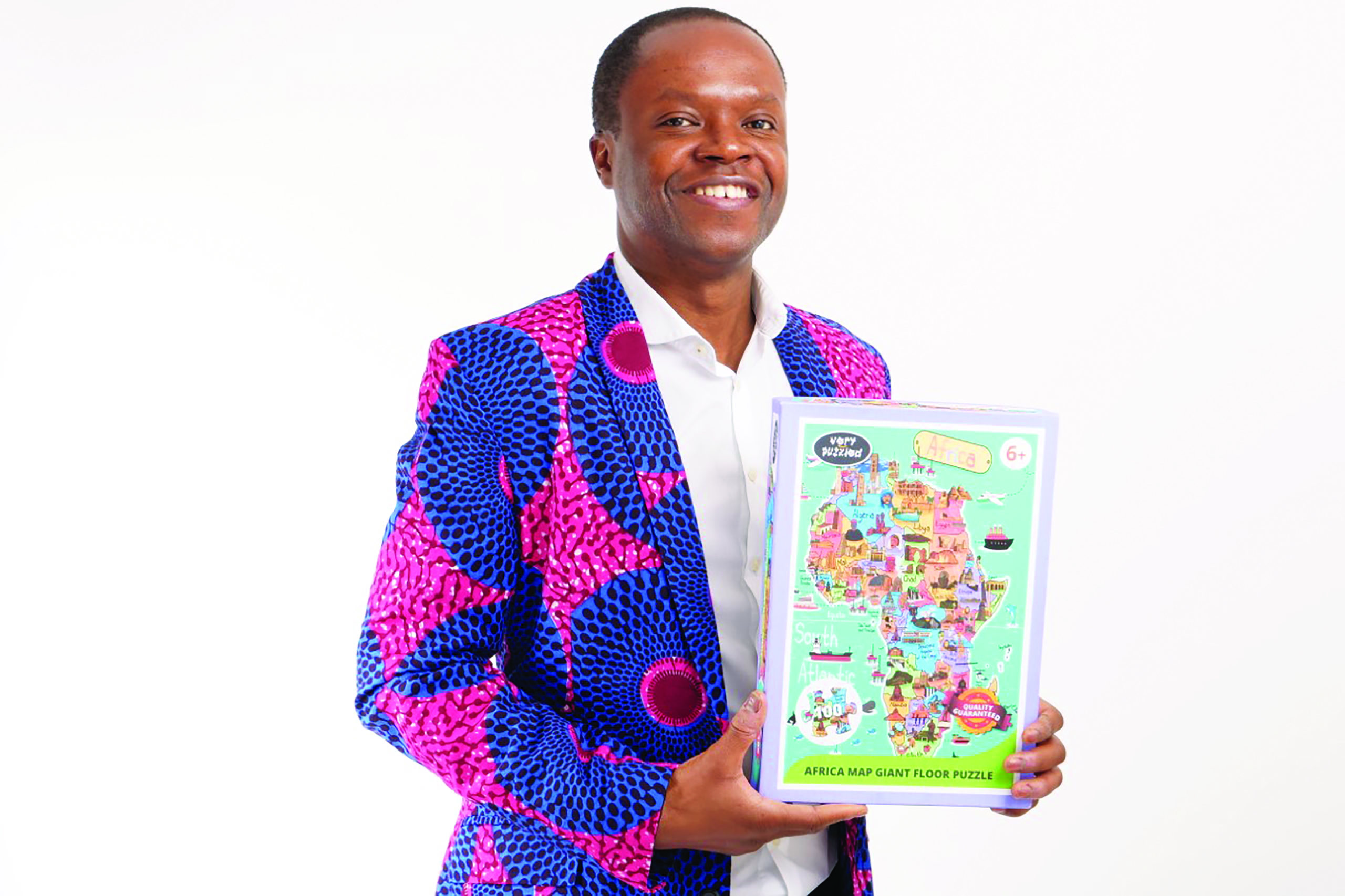London-based Ghanaian entrepreneur and computer science specialist Patrick Adom is inducting children into the fascinating world of jigsaw puzzles while teaching them about African culture.
AS COUNTRIES begin to grapple with the second wave of the Coronavirus pandemic, rapid adoption of activities outside the traditional content- streaming platforms is now beginning to gain traction.
The puzzles market is one such. Focusing on jigsaw and 3D puzzles as well as board games, it was estimated to be worth a staggering $11.88 billion globally in 2019 and on track to grow at a compound annual growth rate of 18.6% from 2020 to 2027, according to Grand View Research.
The lockdowns implemented the world over spelled disaster for many who lost their jobs and livelihoods.
But Patrick Adom, a computer science specialist, saw a silver lining. Inspired by his daughter, the IT professional decided to see it as an opportunity and take a chunk of the lucrative puzzles market with his African-inspired creation, Very Puzzled.
“Africans are patriotic and want to pass down their heritage to their family. So, our sales have grown..”
Known for its success in improved visual and enhanced cognitive skills, Adom wanted to create a jigsaw concept that not only helped people learn more about Africa and the African diaspora, but also something that was fun and engaging for the whole family.
“I wanted children to be able to also learn without realizing that they are learning anything, and [offer] something the family can do together and start a conversation and use that to do further exploration on their own,” says Adom.

After graduating from Kingston University in the United Kingdom (UK), where he studied Computer and Information Systems in 2000, Adom continued his further education with an MBA in general management from Liverpool University before working in various roles within the IT industry.
But throughout his career, the entrepreneurial bug which bit him when in secondary school, where he would buy and sell hip-hop posters to his fellow classmates, was always looking for an awakening.
“I saw that there were not a lot of things around my daughter that focused on her cultural heritage and I thought jigsaw puzzles were an innovative route that nobody was doing. I found an illustrator and it so happened that the illustrator had a map of Africa that was very bright and colorful that resonated with me and so I reached out and asked if it could be customized for me.
“They agreed and I paid them and they delivered the customization I wanted. I then looked on a platform called Alibaba and from there, I was able to secure a manufacturer in China. I made 100 pieces to test the market and reached out to black-owned shops in London to generate buzz about the products and also using Instagram and social media to let people know about the product,” says Adom.
His hard work paid off. Very soon, the products were out and people were buying it.
“I made 100 pieces to test the market and reached out to black-owned shops in London.”
Now, Adom has his eyes set on raising further investment and funding to expand the company’s unique offering. He began drilling down and creating puzzles for other countries like his hometown Ghana, South Africa, and Jamaica.
“Africans are patriotic and want to pass down their heritage to their family. So, our sales have grown and we continue to add more stockists
to our list and that helps grow the business as well. We reached the bold decision to approach a number of premiership clubs to make their own jigsaw puzzles for them featuring their intellectual property and we
got licensing agreements with four premiership clubs so that was a huge success for us,” says Adom.
The move comes at a cost as Adom has to pay licensing fee to the clubs, a risky move but one he needs to make to help broaden the appeal to a wider pool of consumers, the key to draw in the ever-elusive tranche of investors who will eventually help his business scale, and he can make his own indelible mark on the map of Africa.
